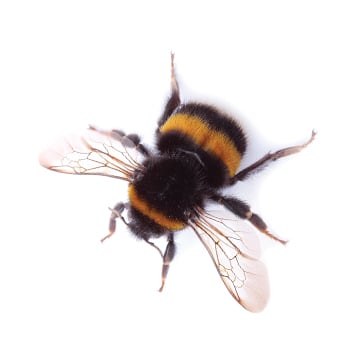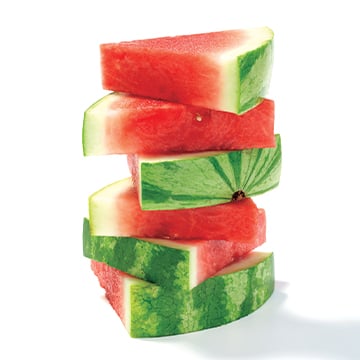WELLNESS
Healthy Summer Kids
Cleveland Clinic Children’s experts offer advice on how to keep kids healthy all summer long.
Photo: Getty Images
1. Stay Safe Outdoors
It’s important — not just physically, but mentally — for kids to play outside, as long as they can do it safely. Keep these tips in mind:
1. The biggest risk for children playing outdoors is head injury, so make sure they’re protected when riding bicycles or skateboards. Protective equipment — including bicycle helmets and knee, elbow and wrist pads — helps ensure kids can do the activities they love safely.
2. The American Academy of Pediatrics doesn’t recommend trampolines for children. However, if a kid is going to be on a trampoline, it should be a ground-level trampoline with an appropriate enclosure around it, and kids should use it one at a time. When more than one child is on a trampoline, injury rates skyrocket.
3. Skin injuries can be dangerous and have lifelong impact — so remember the sunscreen. Applying it to kids anytime they go outside will prevent sunburns and protect their skin.
– RYAN GOODWIN, MD | Dr. Goodwin is Director of the Center for Pediatric and Adolescent Orthopaedics. Follow him on Twitter and Instagram: @ryancgoodwinmd.

Photo: Getty Images
2. Get the Better of Bug Bites
Most insect bites are no reason for concern if you treat them properly:
1. Make sure the child is not having any concerning symptoms or signs of severe allergic reaction, known as anaphylaxis, such as development of hives all over the body, coughing, difficulty breathing, vomiting, dehydration, becoming pale or losing consciousness.
2. Remove all parts of the insect.
3. Clean the wound with soap and water and apply antibiotic ointment to the area for 24 to 48 hours.
4. If bite or sting becomes itchy, apply a topical antihistamine cream to the site. Age appropriate dosing of acetaminophen or ibuprofen can be used for pain control.
5. Continue to monitor the site for signs of infection such as redness or becoming increasingly painful to touch.
Prevention
- Make sure kids always wear shoes when outdoors.
- Remove standing water in birdbaths, kiddie pools and buckets.
- Avoid wearing bright-colored clothing. and sweet-smelling soaps or lotions.
- Ensure children wear insect repellents when outdoors.
- Teach kids to walk away calmly if they encounter insects such as bees or wasps.
– WILLIAM MUDD, DO | Dr. Mudd is a pediatrician. Follow him on Twitter: @wkylemudddo.

Photo: Getty Images
3. Snack Smart
These nutritious options will keep children coming back for more:
Watermelon, Feta and Basil Salad
Ingredients
- 1/2 large seedless watermelon
- 1 cup basil
- 4 ounces feta cheese
- 3 tablespoons olive oil
- 2 tablespoons balsamic vinegar
- Salt and black pepper to taste
Prep
Cut watermelon into 1-inch cubes. Gently rip basil into small pieces. Add watermelon, basil, feta, olive oil, balsamic vinegar and salt and pepper in a large bowl. Gently toss to combine.
Health Benefits
- Watermelon, which is 92% water, will help keep children hydrated.
- Antioxidants in watermelon protect your cells from damage, which can help prevent certain diseases.
- Watermelon is high in vitamin C (boosts your immune system) and Vitamin A (important for eyesight).

Photo: Getty Images
Frozen Grapes
Prep
Wash grapes. Place in freezer. Freeze for at least 1 hour.
Health Benefits
- This easy snack can replace high-sugar ice pops.
- Grapes are high in vitamin K, which has been shown to help keep bones strong.
- Grapes are a good source of potassium, which is an essential mineral that supports healthy blood pressure, heart health and bone/muscle strength.
– HANNA LEIKIN, MS, RD, CSP, LD | Leikin is a pediatric dietitian.
4. Limit Screen Time
Recognize the signs. The American Academy of Child & Adolescent Psychiatry recommends no more than two hours of screen time daily. Some children can tolerate more, and some less. Here are some signs of unhealthy exposure:
- Not enough physical activity
- Increased irritability
- Trouble sleeping
Get creative. Help children find other ways to use their brains this summer. Whether it’s reading a book, playing outside or taking a walk, stepping away from the screen can improve mental and physical health.
Set expectations. It’s a good idea to set expectations about putting down the screens. Use timers and give kids warnings before it’s time to get off the screen.
These recommendations are simple, but not always easy to do. Work with children over time and be patient.
– KATE ESHLEMAN, PSYD | Dr. Eshelman is a pediatric psychologist.
